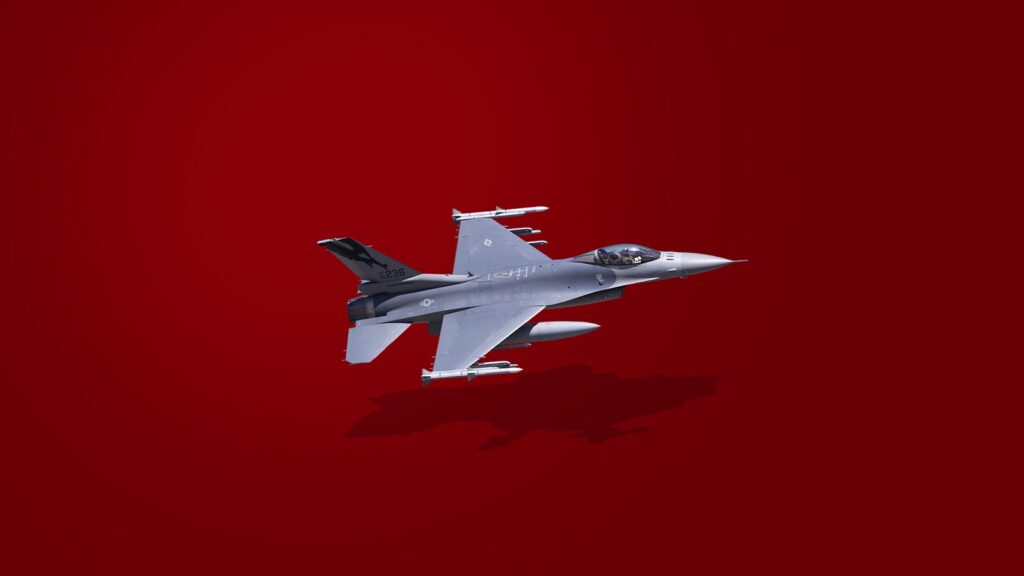On Wednesday, NATO allies announced they had begun transferring F-16 jets to Ukraine and stepped up their promises to Kyiv regarding eventual membership in the alliance. This occurred during a 75th-anniversary summit overshadowed by political uncertainties in the United States.
President Joe Biden, hosting the three-day gathering in the US capital, aimed to rally the West and reassure voters amid pre-election scrutiny of his fitness for the job at 81, six years older than NATO itself.
Biden welcomed the other 31 leaders of the alliance individually before urging them to match Russia’s military production, which has sharply increased since President Vladimir Putin invaded Ukraine two years ago.
“We can — and will — defend every inch of NATO territory and we’ll do it together,” Biden told the North Atlantic Council, the alliance’s formal decision-making body, at Washington’s convention center amid a sweltering heat wave.
Biden announced that Denmark and the Netherlands had started sending US-made F-16 jets to Ukraine, fulfilling a key promise made last year to Kyiv, which has struggled to achieve air parity with Russia.
He also announced new air defense systems for Ukraine and said the United States had agreed to periodically place long-range missiles in Germany.
In the evening, Biden hosted the NATO leaders for a gala dinner, which was marked by storm clouds that forced the cancellation of a planned flypast.
Biden likened the alliance to his childhood neighborhood, saying, “When a neighbor needed help, you pitched in. When the bullies threatened the block, you stepped up.”
US Secretary of State Antony Blinken said the F-16 transfer “concentrates Vladimir Putin’s mind on the fact that he will not outlast Ukraine, he will not outlast us.”
However, White House challenger Donald Trump, who is leading Biden in polls ahead of November’s presidential election, has suggested bringing a quick peace settlement by pushing Ukraine to surrender territory to Russia.
The Republican mogul has repeatedly questioned NATO’s utility, seeing it as an unfair burden on the United States, which was formed in 1949 as a collective defense against Moscow.
On the eve of the summit, Russia launched a missile barrage on Ukraine, killing dozens, including in Kyiv, where a children’s hospital was reduced to debris.
Biden invited Ukrainian President Volodymyr Zelensky to the summit, who expressed gratitude for the F-16s.
The new aircraft will “bring just and lasting peace closer, demonstrating that terror must fail,” Zelensky wrote on social media.
The summit aimed partly to “Trump-proof” the alliance by giving NATO a greater role, rather than the United States, in coordinating arms delivery to Ukraine.
In a joint declaration, NATO leaders promised to provide Ukraine with 40 billion euros ($43 billion) in military aid “within the next year,” part of efforts to increase stability after Trump’s allies in Congress delayed US assistance for months.
Trump’s aides have discussed conditioning aid to Ukraine on forcing Kyiv to negotiate and have said that China, not Russia, is a larger concern to US interests.
The NATO leaders’ statement also took aim at China, expressing “profound concern” over its industrial support to Russia.
China’s reaction was swift.
“NATO should stop hyping up the so-called China threat and provoking confrontation and rivalry, and do more to contribute to world peace and stability,” a spokesman for Beijing’s mission to the EU said, adding that “China’s position on Ukraine is open and aboveboard.”
Biden invited four key Pacific partners to the summit — Japan, South Korea, Australia, and New Zealand — as he seeks to expand NATO’s role in Asia.
The summit also reinforced promises to Ukraine, stating that it was on an “irreversible path to full Euro-Atlantic integration, including NATO membership.”
Ukraine has sought but failed to achieve NATO membership for years, as the alliance considers an attack on one member an attack on all.
However, Biden and German Chancellor Olaf Scholz have led concerns that admitting Kyiv now would effectively mean entering a war with nuclear-armed Russia, which occupies large parts of Ukrainian territory.
UK Prime Minister Keir Starmer, visiting days after his Labour Party’s election victory, promised Zelensky that Britain — unlike the United States — was united across partisan lines in supporting Ukraine.
Starmer indicated he had no issue with Ukraine using UK missiles to strike Russian territory, remarks that drew a rebuke from Moscow.
The summit, Starmer told reporters, is demonstrating to Putin that NATO is “bigger now than it’s ever been, more united than it’s ever been, and absolutely clear-eyed about the threat of Russian aggression.”



